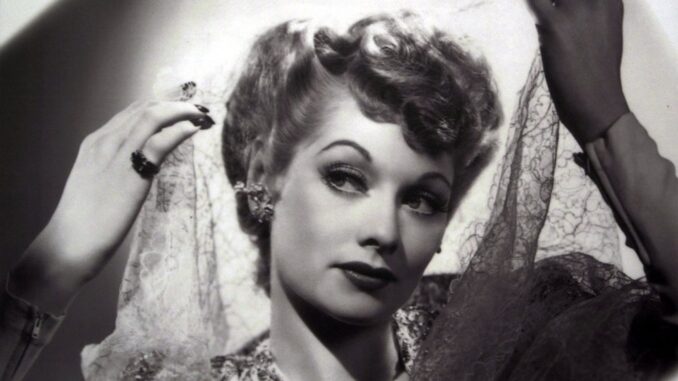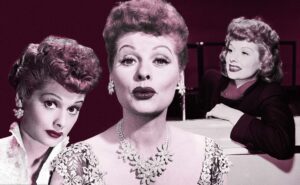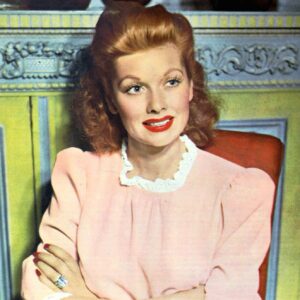
Lucille Ball, a legendary figure in television history, made an unforgettable mark with I Love Lucy. But behind the iconic show was a pivotal decision that would forever change not only her career but the face of television itself. Have you ever wondered why Lucille Ball decided to do I Love Lucy? It wasn’t just about creating a hit sitcom—it was a personal and professional gamble. Let’s dive deep into the real reason behind her groundbreaking decision and how it shaped the future of comedy.
The Rise of Lucille Ball Before I Love Lucy
Lucille Ball’s career didn’t start with I Love Lucy—in fact, she was already a well-known actress by the time the show aired. She had spent years in Hollywood, earning her nickname “The Queen of the B’s” for her roles in B-movies. However, she craved something bigger—something that would truly showcase her comedic talent.
The Role of Radio in Lucille Ball’s Journey
Before television became the dominant entertainment medium, radio reigned supreme. In 1948, Lucille starred in a radio show called My Favorite Husband, where she honed her comedic skills. This show would eventually serve as the foundation for I Love Lucy. However, the transition from radio to television was not as simple as it seemed.
Why Lucille Ball Wanted Desi Arnaz in I Love Lucy

One of the most significant reasons Lucille Ball decided to do I Love Lucy was her desire to work with her husband, Desi Arnaz. At the time, they had a hectic schedule, and Lucille wanted to find a way to spend more time together. By bringing Desi into the project, they could combine work and personal life. However, the networks were initially reluctant to cast Desi, a Cuban-American, as Lucille’s husband on screen.
Breaking Barriers: An Interracial Couple on TV
The 1950s were a time of strict societal norms, and interracial couples were rarely seen on television. Lucille Ball, however, was determined to have Desi Arnaz play her on-screen husband, despite the network’s pushback. This move was revolutionary. Not only did it reflect their real-life relationship, but it also challenged the status quo and opened the door for greater diversity on TV.
The Studio’s Reluctance and Lucille’s Persistence
CBS executives were hesitant about the show for several reasons. They weren’t sure the American audience would accept Desi as the co-star, and they doubted the public was ready for a domestic comedy starring a real-life couple with such chemistry. But Lucille Ball was unyielding. She knew the show had potential, and she wasn’t about to back down.
Lucille Ball’s Business Savvy: Creating Desilu Productions
What many people don’t realize is that Lucille Ball wasn’t just a comedic genius—she was also a shrewd businesswoman. Alongside Desi Arnaz, she co-founded Desilu Productions, the studio responsible for producing I Love Lucy. This gave Lucille and Desi more creative control and allowed them to make bold decisions, like filming the show in front of a live audience and pioneering the multi-camera format.
Pioneering the Multi-Camera Setup in Television
One of the most innovative decisions behind I Love Lucy was the use of a multi-camera setup. This technique allowed for better editing and higher-quality production, setting a new standard for sitcoms. Lucille Ball’s willingness to take risks and try something new played a huge role in the show’s success.
The Impact of I Love Lucy on Television

When I Love Lucy debuted in 1951, it quickly became a hit. The chemistry between Lucille and Desi was electric, and the show’s humor was universally appealing. But beyond the laughs, I Love Lucy had a lasting impact on the television industry. It introduced the concept of re-runs, helped establish the syndication model, and proved that television could be just as influential as film.
Lucille Ball’s Fear of Being Forgotten
One of the lesser-known reasons Lucille Ball decided to take on I Love Lucy was her fear of becoming irrelevant. After years of acting in films without achieving the level of success she desired, Lucille worried that her career was stagnating. Television offered her a new platform where she could reinvent herself—and it worked.
Desi Arnaz: The Mastermind Behind the Business Model
While Lucille was the comedic heart of the show, Desi was the brains behind its business model. He spearheaded the decision to film the show on 35mm film, which ensured high-quality footage that could be preserved for future reruns. This decision was groundbreaking, as it allowed I Love Lucy to become one of the first shows to successfully enter the syndication market.
Lucille Ball’s Influence on Female Comedians
Lucille Ball’s decision to create I Love Lucy didn’t just pave the way for television sitcoms; it also opened doors for future female comedians. Lucille showed that women could be funny, intelligent, and successful in a male-dominated industry. Her fearless approach to comedy inspired generations of performers.
How I Love Lucy Redefined Marriage on TV
Before I Love Lucy, many TV shows portrayed an idealized version of marriage. But Lucille and Desi’s on-screen relationship was different. Their playful banter, occasional arguments, and genuine affection reflected the realities of marriage in a way that audiences found refreshing. It was a more authentic portrayal of relationships than viewers were used to seeing on television.
The Legacy of I Love Lucy
Lucille Ball’s decision to do I Love Lucy wasn’t just about creating a funny show—it was about making history. The series set the standard for sitcoms, and its influence can still be seen in television today. From its groundbreaking use of the multi-camera setup to its bold representation of an interracial couple, I Love Lucy broke barriers and changed the entertainment landscape.
Conclusion
Lucille Ball’s choice to do I Love Lucy was not only a professional decision but a personal one. She wanted to spend more time with her husband, break new ground in the television industry, and, perhaps most importantly, prove that she had what it took to be a star. Her legacy lives on through the countless sitcoms, comedians, and television shows that have followed in her footsteps. Lucille Ball was more than just a comedian—she was a trailblazer who forever changed the way we experience television.